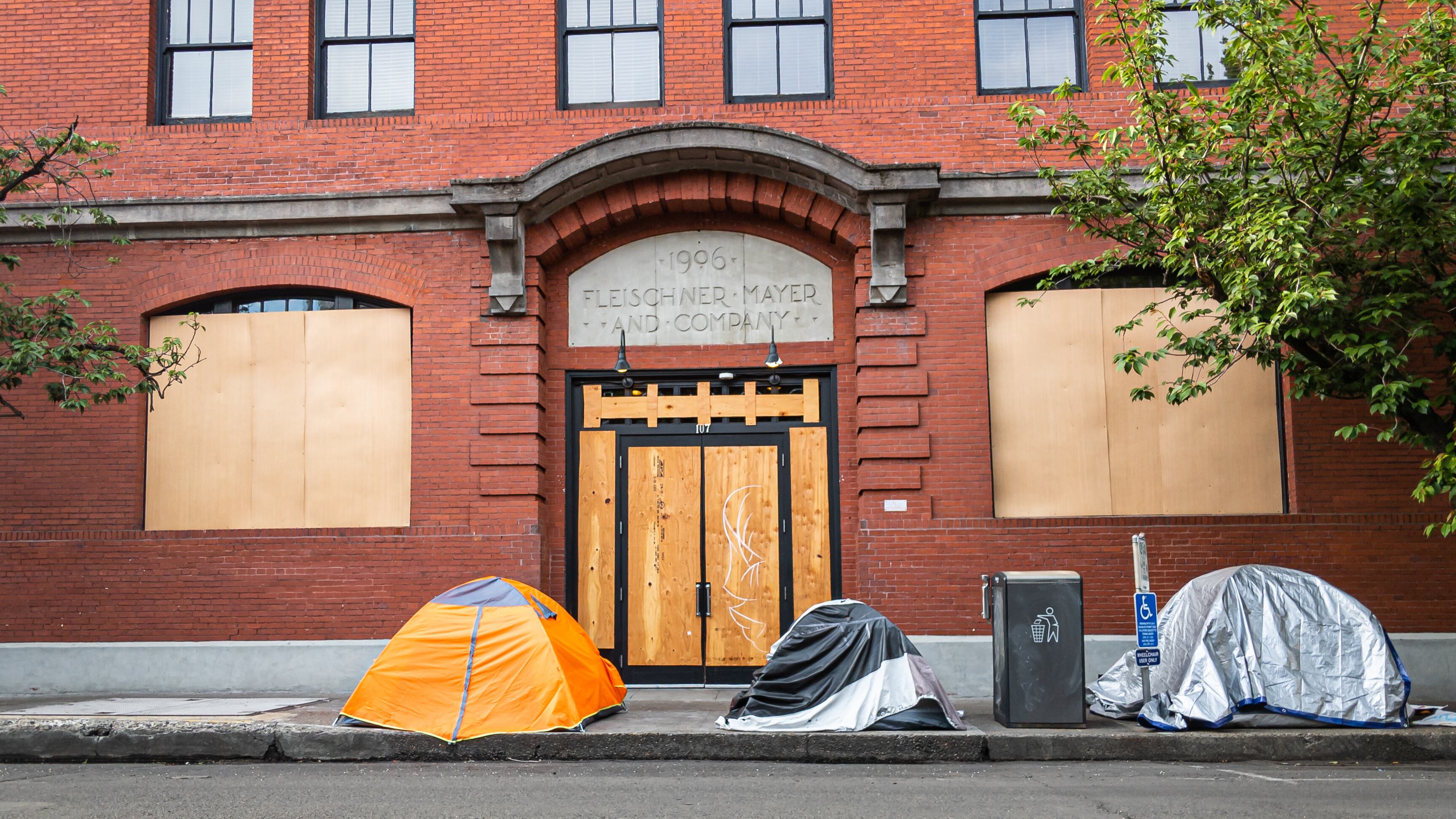Multnomah County's most recent homeless counts show Black people are more likely to sleep on the streets of Portland—and they regularly die there.
The county's 2019 point in time report shows Black people made up 16.1% of the houseless population—more than double their share of the general population in Multnomah County, which is 7.2%.
Marisa Zapata, who researches homelessness at Portland State University, says this disparity should come as no surprise. "Homelessness is best described as a collection of all massive systemic failures in society," she says. "We see a series of racial disparities in homelessness for all of the reasons we see racial disparities across the board for people of color, in particular for those who are Black and Indigenous: because that's the foundation of the country."
The annual domicile unknown report compiled by Multnomah County and Street Roots, keeps track of those who died while houseless. The most recently released report shows that 82% of the 97 people who died on the streets whose ethnic background could be identified were white. The second-largest racial demographic to die on the streets were Black people, with eight deaths, or more than 8%. That isn't a statistically significant disparity: It's within a percentage point of the Black population size, yet it's still an overrepresentation.
But the outsized number of Black people sleeping outside helps explain why Multnomah County is prioritizing people of color in both its distribution of federal CARES Act funds and a homeless services tax passed by voters last spring. The disparities faced by Black Portlanders have been exacerbated by a pandemic that has reduced employment options for the poorest Oregonians.
"We see people of color are being impacted by COVID in a number of ways: with higher disease incidents and worse disease outcomes, also with loss of wages and less of an ability to pay rent in the coming months. That is all compounded by race," Zapata says. "Unless we take dramatic intervention, we're going to be in a worse situation."
This reporting has been funded in part by a grant from the Jackson Foundation. See more Black and White in Oregon stories here.

